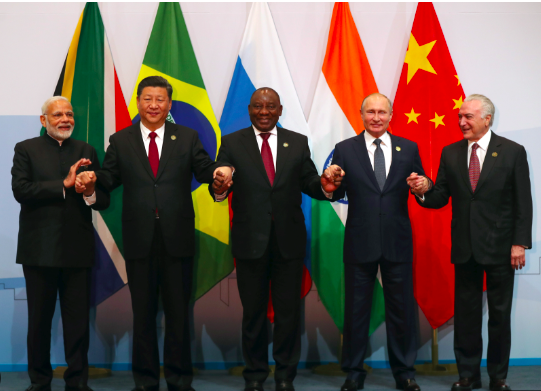Chinese Premier Li Qiang has begun a tour to Germany and France, which comes as Europe tries to strike a balance between its desire to engage Beijing on subjects like climate change and its concerns over China’s economic dependence on it and its posture towards the Ukraine and Taiwan.
Li was welcomed by German President Frank-Walter Steinmeier on his first trip abroad since taking office. On Tuesday, he will meet with Chancellor Olaf Scholz and their German colleagues alongside a sizable team of Chinese ministers. This will be the seventh time that the two nations’ governments have met in this manner.
There will be meetings with business representatives and top officials from both sides.
Li, a former Shanghai Communist Party secretary, was appointed China’s No. 2 official in March.
It was a component of a once-every-ten-year change of administration that placed Xi Jinping supporters to carry out his agenda of tighter political control over the country’s economy and society.
The visit occurs as Germany and Europe debate how to effectively deal with a China that is becoming more assertive. In order to minimise overdependence on Chinese trade and material, Scholz has argued for a balanced strategy, pushing for “derisking” while categorically opposing the notion of “decoupling.”
That stance was reiterated last month by the key industrial heavyweights of the Group of Seven.
The G-7 has no desire to obstruct China’s economic development, but at the same time, Scholz said on Monday, “we are watching closely to avoid dangerous economic dependencies.”
China has recently been Germany’s largest trading partner, though in the first quarter of this year, it was just ahead of the US.
The government of Germany claims in its first national security plan that it sees China as “a partner, competitor, and systemic rival.”
According to the report, “elements of rivalry and competition have grown in recent years; at the same time, China continues to be a partner without which many of the most pressing global challenges cannot be resolved.”
German government representatives highlight the fight against climate change as a crucial area for future collaboration. The meeting’s official motto is “Acting sustainably together.”
Although it’s unclear when, the German government is still developing a comprehensive independent strategy on China.
U.S. Secretary of State Antony Blinken was in Beijing at the same time as Li’s appearance in Berlin in an effort to defuse tensions with China. That visit was praised by Scholz as “a good sign for an urgently needed normalisation of relations.”
In November, the chancellor visited Beijing to meet with Xi, who issued a strong warning against the use or threat of nuclear weapons. In light of China’s failure to condemn Russia’s invasion of Ukraine, Scholz regularly depicts that as a victory.
The government of Scholz settled an internal dispute regarding a Chinese shipping company’s interest in a German container terminal just before that trip. The COSCO company’s ownership was restricted to a holding just under 25%, which meant that it lacked the authority to veto the operator’s actions.
Li’s decision to make Germany his first destination, according to Chinese Foreign Ministry spokesman Wang Wengbin, “fully reflects the high importance China attaches to China-Germany relations.” China, he added, was looking forward to “sending positive signals to the world to strengthen dialogue and cooperation” and working with other nations to tackle problems “so as to promote the prosperity and development of the world economy.”
Li is stopping in France after visiting Germany, which has the second-largest economy in the EU. Li intends to go to a “Summit for a New Global Financing Pact” that French President Emmanuel Macron is organising when she is there.















